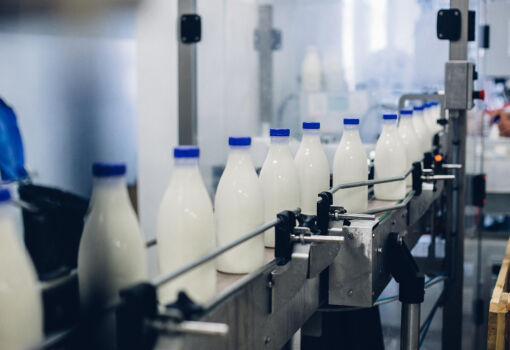
Tightening shortage of seasonal workers
In principle, this has been a basic constraint to quantitative growth in the fruit, berry and vegetable (to a lesser extent) production subsectors for the past ten years, maybe more. This year, however, the problem has taken on an existential character. As vegetable and berry growers and farmers claim, many of them have struggled to hire more or less suitable (in terms of physical and mental condition) day laborers for even partially automated seedling planting operations. Winegrowers had difficulty in gathering people to carry out “green operations” on the plantations.
“The problem was not cured” even by raising fees for services. If a few years ago the “working price” of a seasonal worker was the standard 300 lei per day, this year the payment for more or less qualified and conscientious labor has decisively stepped up a notch – an average of 400 lei per day. Further – more: for harvesting and primary sorting of berries and stone fruits before putting them into containers on plantations, some agricultural producers, oriented to export of products, pay the most highly productive workers about 500-700 lei per day.
Despite this level of payment, the only thing that saves farmers from a fatal shortage of labor is that the harvest of early fruits and berries due to frosts is relatively small. Otherwise, the level of production losses due to the fact that there is no one to harvest them in time would be very significant.
By the way, for comparison and understanding: in strawberry harvesting in Germany, according to “Deutsche Welle”, workers are paid within 12-14 euros per hour. In Poland and Romania, the labor of seasonal agricultural workers is 20-30% cheaper. On the other hand, in Ukraine, the wages for fruit and berry pickers were 10-15% lower than in Moldova a few years ago, but the war changed the balance. The labor force is in short supply, and the wages have risen to the European level.
Some Moldovan farmers are thinking with great anxiety about how they will solve the problem of hiring people to harvest those products whose harvest is likely to be high. First of all, we are talking about grapes. As “creative options”, farmers recall contracts with educational institutions for the “temporary use” of students and high school students.
“Renaissance” of cash payments
A very alarming problem, a clear indicator of the unhealthiness of the agrarian business environment and, partly, of the national economy as a whole. In the “legendary 90s”, partial payment in cash for deliveries of agricultural products to a merchant reseller and/or processor, once a widely known method of “kickback to pocket”, was a form of realization of a Moldovan farmer’s personal dream – a conditional “house in Constanta”. Nowadays, many agricultural producers need “cache” to pay for production services and resources, first of all – daily labor. Moreover, it is often the hired laborer, not the farmer, who does not want to “shine in the databases of competent state structures”.
According to fruit raw material procurers for industrial processing, and especially for freezing, which experts often classify as a form of product storage, farmers are ready to discount the purchase price by about 15-20% if the buyer agrees to pay “in cash at once” 30-50% of the volume of shipped products. This is partly related to the last point of the TOP-3 specific problems of fruit growing in Moldova.
Very large variation of prices for stone fruits and berries
This is due to the fact that, paradoxically, great opportunities can also be problems. Spring frosts have damaged the fruit growing sector of many European countries to a great, and in some cases – to a very great extent. Consequently, procurers (first of all, of fruit raw materials for freezing) are filling themselves with hope to get the missing volumes of production “wherever they can”. Including Moldova. From the very beginning of summer, troopers of buyers of berries (almost the whole assortment, but especially interested in raspberries) and stone fruits (cherries, apricots) from Poland, Serbia, Romania, Turkey, Russia, Belarus and some more exotic countries landed in the country.
The range of price offers is very wide. Sometimes the prices for raw materials are close to the level of “fresh market” prices. Taking into account, as one local processor put it, “marketing frenzy and chaos”, it is easy for farmers to fall into the temptation to sell their products quickly and not at all cheaply to the new faces of the Moldovan fruit market.
In this regard, experts warn that farmers should make inquiries about the foreign buyer before the transaction. The conjuncture of the fruit and berry market in Europe over the last few years was such that the well-known producers bought fruit raw materials expensively, and sold frozen products relatively cheaply. As a result, at the moment they are “five minutes” away from bankruptcy, i.e. their actual solvency is doubtful.

